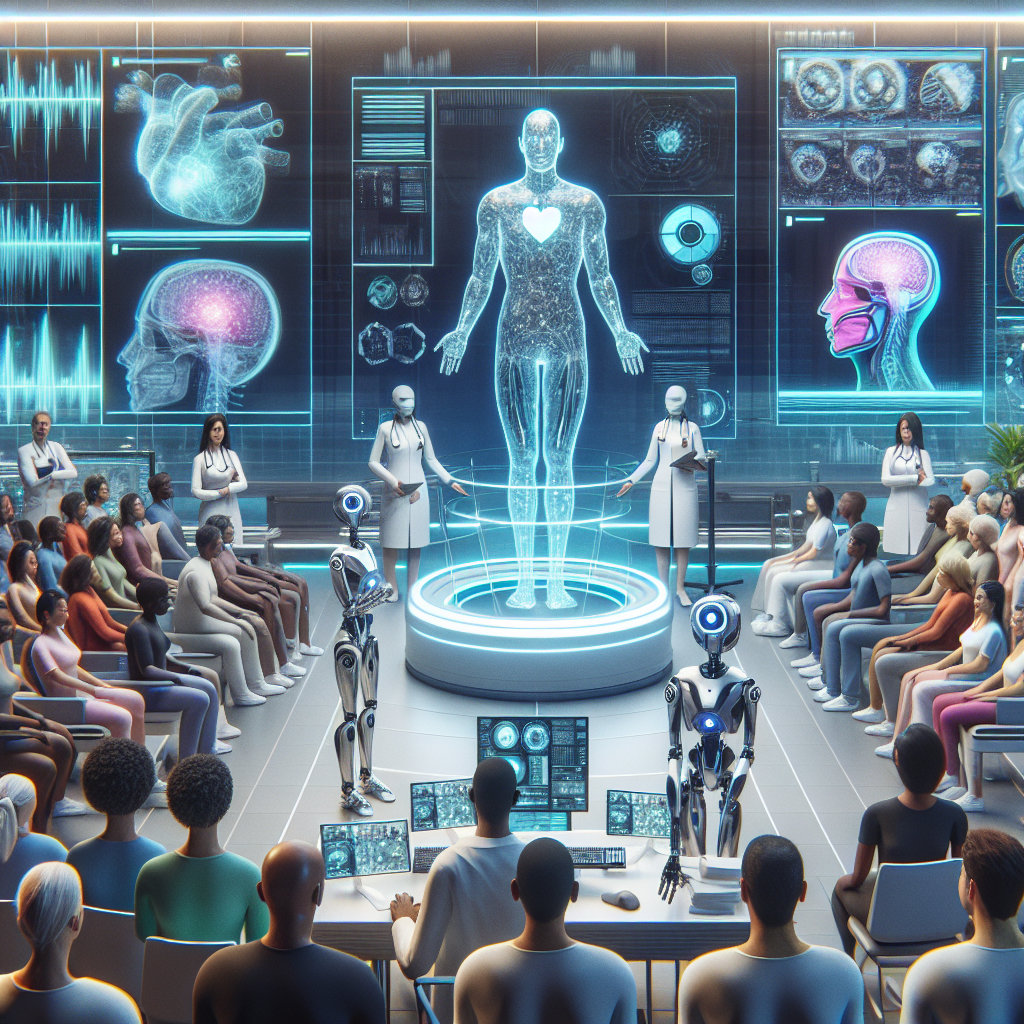The Future of Generative AI in Healthcare Diagnostics
Artificial intelligence (AI) has made significant advancements in healthcare in recent years, particularly in the field of diagnostics. Generative AI, a subset of AI that involves creating new data or content, is poised to revolutionize healthcare diagnostics even further. Generative AI has the potential to improve the accuracy and speed of diagnostic processes, leading to better patient outcomes and reduced healthcare costs.
Generative AI works by generating new data based on patterns it has learned from existing data. In healthcare diagnostics, this can involve analyzing medical images, genetic data, or other types of patient data to identify patterns and make predictions about a patient’s health. This can be particularly useful in complex diagnostic tasks where human experts may struggle to interpret large amounts of data.
One area where generative AI is already making an impact is in medical imaging. AI algorithms can analyze medical images such as X-rays, MRIs, and CT scans to identify patterns that may indicate disease or other health issues. This can help radiologists and other healthcare professionals make more accurate diagnoses and develop more effective treatment plans.
Generative AI can also be used to analyze genetic data to identify patterns that may indicate a patient’s risk for certain diseases or conditions. By analyzing large amounts of genetic data, AI algorithms can identify genetic markers that may be associated with a particular disease, allowing healthcare providers to take preventive measures or develop personalized treatment plans.
In the future, generative AI may also be used to analyze other types of patient data, such as electronic health records, to identify patterns that may indicate health issues or predict future health outcomes. This could help healthcare providers identify patients at risk for certain diseases and intervene earlier to prevent or treat these conditions.
One of the key benefits of generative AI in healthcare diagnostics is its ability to process large amounts of data quickly and accurately. This can help healthcare providers make more informed decisions about patient care and improve the overall quality of healthcare delivery. Generative AI can also help reduce the burden on healthcare professionals by automating routine diagnostic tasks, allowing them to focus on more complex and challenging cases.
Despite its potential benefits, there are also challenges and limitations to consider when using generative AI in healthcare diagnostics. One of the main concerns is the potential for bias in AI algorithms. If the data used to train AI algorithms is biased or incomplete, the algorithms may produce inaccurate or unfair results. It is important for healthcare providers to carefully consider the data used to train AI algorithms and ensure that it is representative of the patient population.
Another challenge is the need for regulatory oversight and ethical considerations when using generative AI in healthcare diagnostics. Healthcare providers must ensure that AI algorithms comply with privacy regulations and ethical guidelines to protect patient data and maintain trust in the healthcare system.
Despite these challenges, the future of generative AI in healthcare diagnostics looks promising. As AI algorithms continue to improve and evolve, they have the potential to revolutionize healthcare diagnostics and improve patient outcomes. By harnessing the power of generative AI, healthcare providers can make more accurate diagnoses, develop personalized treatment plans, and ultimately improve the quality of care for patients.
FAQs
Q: How does generative AI differ from other types of AI in healthcare diagnostics?
A: Generative AI involves creating new data or content based on patterns learned from existing data, whereas other types of AI in healthcare diagnostics may involve analyzing data to make predictions or recommendations.
Q: How can generative AI improve healthcare diagnostics?
A: Generative AI can improve healthcare diagnostics by processing large amounts of data quickly and accurately, identifying patterns that may indicate disease or other health issues, and helping healthcare providers make more informed decisions about patient care.
Q: What are the challenges of using generative AI in healthcare diagnostics?
A: Challenges include potential bias in AI algorithms, regulatory oversight and ethical considerations, and the need to ensure that AI algorithms comply with privacy regulations and ethical guidelines.
Q: What is the future of generative AI in healthcare diagnostics?
A: The future of generative AI in healthcare diagnostics looks promising, with the potential to revolutionize healthcare diagnostics, improve patient outcomes, and reduce healthcare costs. As AI algorithms continue to evolve, they have the potential to make more accurate diagnoses, develop personalized treatment plans, and ultimately improve the quality of care for patients.

